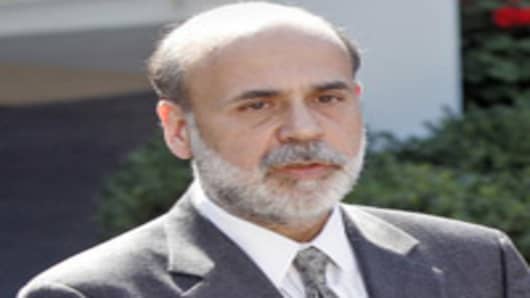Fed officials expect the economy to slow because of the credit crisis that hit over the summer after worries about sour mortgage loans spread, though strong exports and steady hiring and spending have buoyed the world's largest economy so far.
Analysts anticipate expansion at a 3% annual rate from July through September when the government publishes its first estimate of third-quarter gross domestic product on Wednesday morning, the day the Fed's policy-setting Federal Open Market Committee is due to announce its decision in interest rates.
Further Deterioration Ahead
But the outlook for the final three months of the year is for a rapid deterioration caused by lingering weakness for home sales and construction, softer consumer and business spending, and slower job growth.
"Looking ahead, the housing market is just tremendously troubling," said Carl Tannenbaum, chief economist for LaSalle Bank ABN Amro in Chicago.
"Clearly all of the risk for economic growth is for the downside," he said.
Fed officials concede that housing will contract further and exert a "significant" drag on growth into 2008. That said, the impact of the housing downturn on business and consumer spending remains uncertain, they have said.
And while financial markets have experienced some improvement since the worst of the credit crunch mid-August, a full recovery will probably take some time and may be uneven, officials say.
Signs Point to Moderate Response
"Our policy action will not be able to avert all of the weakness in the economy that may be in train for the next several months," Fed Governor Donald Kohn said on Oct. 5.
As a result, the 2008 growth outlook looks lower than the 2.5 percent to 3 percent range the Fed forecast in July, a direct result of tightening credit and likely retrenchment of household and business spending, analysts believe.
In the meantime, the Fed will continue to have to balance risks to growth with lingering concerns that, as energy prices rise and the U.S. dollar weakens, inflation may flare.
Many analysts think that means the central bank will hold any further interest rate cuts to a quarter-point.
"The potential inflationary consequences of higher oil and other commodity prices, plus the further depreciation of the dollar in foreign exchange markets, argues for a more moderate policy response than last month," UniCredit economist Roger Kubarych said.
Markets would likely react to another half-point interest rate cut with concern that the economy is in a more precarious situation than previously thought, he added.


